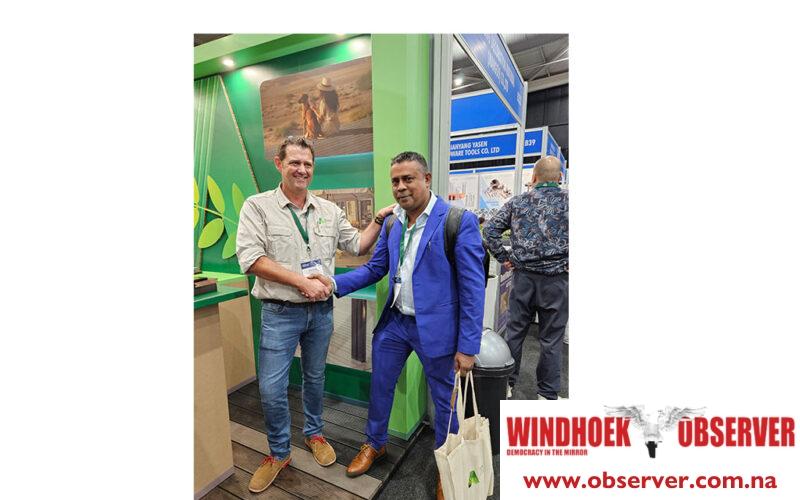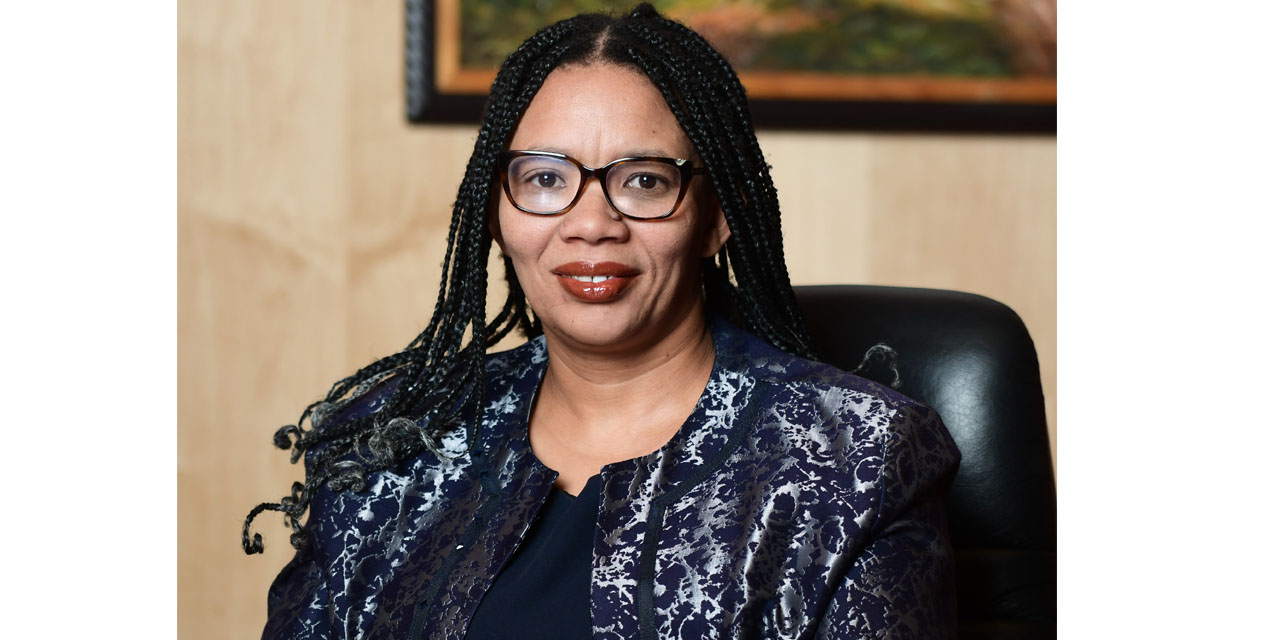Acacia-Composites Manufacturers, the African continent’s only WPC (wood-plastic composite) manufacturer, recently exhibited at WoodEX for Africa 2025, which was held at the Gallagher Convention Centre in Johannesburg, South Africa.
Acacia-Composites Manufacturers offers premium decking and cladding solutions with sustainably designed exhibition booths built entirely from compressed cardboard. Made using 70% intruder bush species and recycled plastic, Acacia’s WPC products are produced in Windhoek and certified to meet stringent European standards.
Eike Bolm, business manager of Acacia-Composites, said the presence at WoodEX is more than just an exhibition but a celebration of Namibian ingenuity.
Bolm told Observer Money that while South Africa remains a key market, the company is also seeing growing interest from Botswana, Zimbabwe, Reunion, and, more recently, Europe and the Middle East.
Observer Money (OM): What are the plans for Acacia-Composites Manufacturers in Namibia? Do you have plans to expand?
Eike Bolm (EB): Yes, we do. Our vision is to establish Acacia-Composites as the leading manufacturer of wood-plastic composites (WPCs) in Africa. Acacia-Composites is the only WPC decking manufacturer in Africa. In the short term, we plan to expand our product range to include more design variations and system-based outdoor solutions. Strategically, we’re also looking to scale up production capacity to meet growing demand locally and across the countries we service, which now includes the UAE, Germany, and South Africa. Additionally, we’re exploring partnerships and distribution networks to increase access to our products throughout Southern Africa. This growth will encompass job creation in Namibia.
OM: The products are made using 70% intruder bush species and virgin plastic. How is this important for Namibia?
EB: This combination directly addresses one of Namibia’s most pressing environmental issues: bush encroachment. By harvesting and repurposing intruder bush species, we help rehabilitate farmlands, restore biodiversity, and create economic value from a once-problematic resource. While we previously used recycled plastics, we have since shifted to virgin plastic to meet the stringent quality and durability standards required for premium construction materials. This procedure ensures a longer-lasting, dimensionally stable product, which is essential in harsh climates. Our process represents a fusion of environmental restoration and advanced manufacturing, turning local ecological challenges into sustainable infrastructure solutions.
OM: Apart from South Africa, where else does Acacia-Composites Manufacturers export its products?
EB: While South Africa remains a key market, we are also seeing growing interest from Botswana, Zimbabwe, Reunion, and, more recently, Europe and the Middle East. We’ve also supplied projects in Germany, demonstrating that our products meet stringent European quality standards. Our export strategy focuses on regions where sustainability, durability, and climate-adapted designs are highly valued. We continuously build relationships with regional distributors, architects, and project developers to expand our presence further.
OM: How many people does Acacia-Composites Manufacturers employ?
EB: Acacia-Composites currently employs 11 people at its manufacturing facility in Windhoek, Namibia. While the roles span various areas of production, operations, and management, what unites us is a shared commitment to sustainability and quality. As the company grows and demand increases, plans are in place to expand the team, particularly in technical production and sales support.




